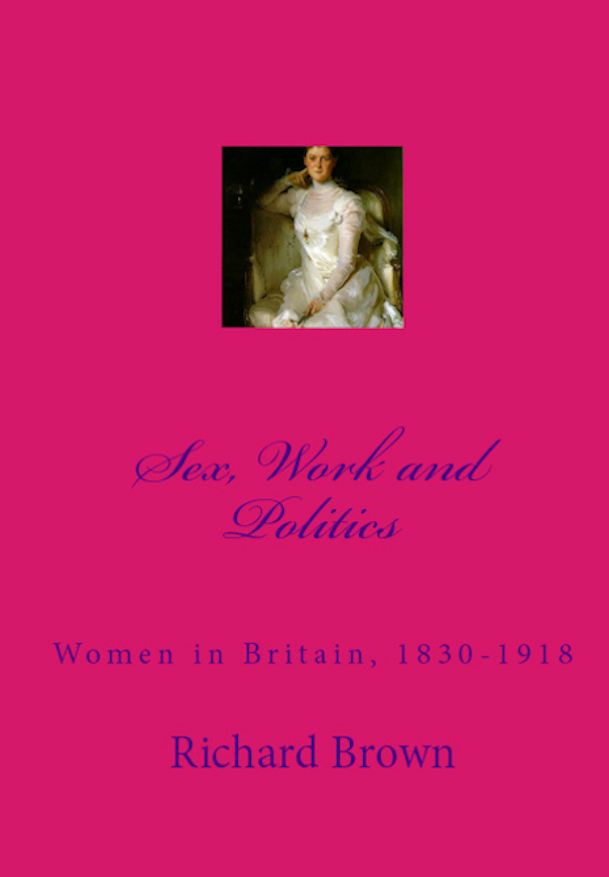Sex, Work and Politics: Women in Britain 1830-1918
Review

Sex, Work and Politics: Women in Britain 1830-1918 by
Richard Brown (Createspace), 2012 482pp., $25, paper, ISBN 978-1466449084
Besides research on primary sources, academics and scholars also have to reflect on available secondary sources, so as to publish syntheses meant at the general public. Richard Brown embarked on such an educational mission and his resulting Sex, Works & Politics: Women in Britain, 1830-1918 is based on a very impressive and up-to-date bibliography, whose findings and conclusions are used with a distanced, critical-enough mind, so that his essay can still be considered as original thinking.
Richard Brown writes in a very readable style, and the copious footnotes never interfere. There are occasional touches of humour or more personal remarks, so that readers can feel how much this retired teacher loves to share his interests in a sincere and generous way.
Although eventually focussing on a particular approach, Brown always introduces his readers with the various historical points of views on each of the gender-related issues he tackles. The first chapter on "Positioning Women's History" is both clear and dispassionate, quite a feat in such a minefield! Starting with a study of the way women were/are represented encourages the reader to keep their own critical distance henceforward.
Brown gives pride of place to the Suffrage Question, to which he devotes three chapters out of ten. However, he did not neglect other questions that tend to be overshadowed in less balanced essays, such as that of Victorian women's place in the economy (his third chapter). Meanwhile, the paramount importance of moral values, ideals and representations is well acknowledged, not only in the second chapter on "Re-presenting Women", but as a constant complement to resulting facts and figures. Finally, Brown avoids the trap of the mainly middle-class viewpoint, as all the best and latest research on Victorian working class women is there too.
Reading Sex, Works & Politics: Women in Britain, 1830-1918 made me exclaim "still true today" again and again, and I felt like exploring further some of the research Richard Brown had to sum up. Leaving the reader both content and frustrated is the sign of a successful synthesis: I learned a lot and I want to learn even more about some of the issues I discovered.
I strongly recommend this essay to anyone interested in the Victorian era. It is an invaluable source of reliable information, both on the social status of Victorian women and on the way historical research has been conducted on an issue that is not disconnected from contemporary gender-related questions.
Mme Muriel Pécastaing-Boissière
Maître de Conférences en Civilisation Britannique
UFR d'Anglais, Paris IV
Coordinatrice des commandes d'ouvrages émanant de l'UFR d'Anglais.

